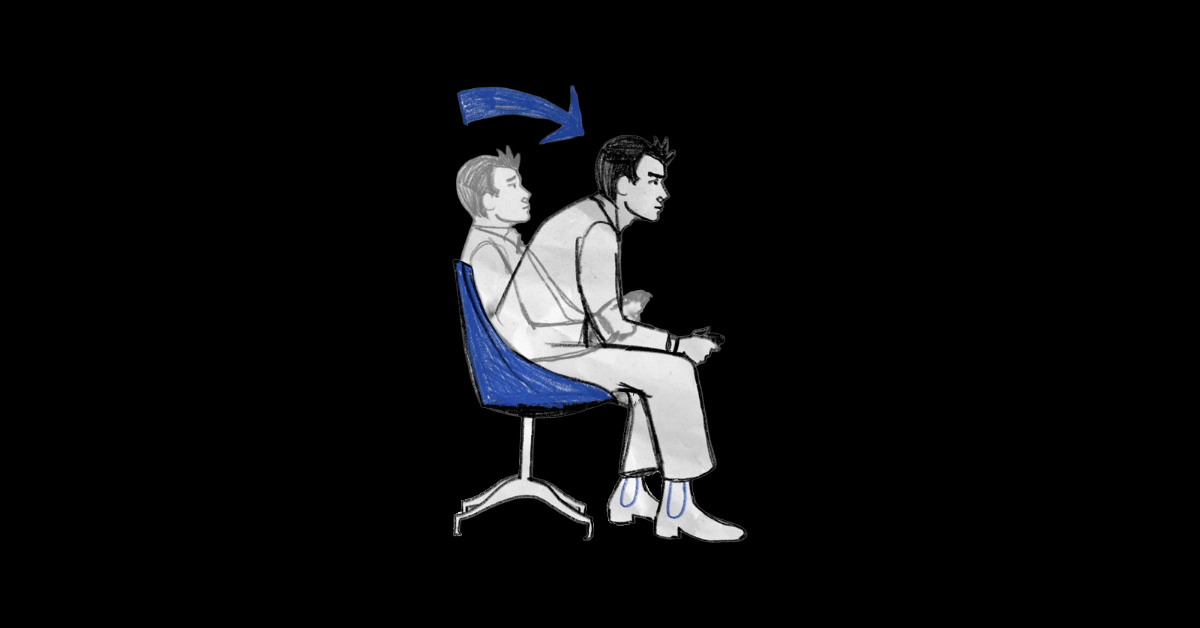
Ok I’m going to be honest here, at first, I thought “locking in” was just another dangly-earring-tiktok-gym-bro-turned-life-coach phrase.
The kind of thing shouted over a pre-workout shake while setting up a tripod to flex traps unnecessarily hard. But, and I don’t say this lightly, the hater in me has had a change of heart. I’m looking at it a little different. Because I’ve noticed these kids aren’t “locking in” to grind harder and burn out by age 23. They’re locking in to log off. Or, in other words, to lock out. And that’s a huge (pleasantly surprising) difference.
Because Gen Zers are literally disappearing from the internet to go Super Saiyan. To focus, to heal, to rebuild, and completely rebrand themselves. Sometimes you’ll catch a glimpse of it, like a ghost in the mist: a cryptic “See you on the other side” post before vanishing into silence. Months later they reappear with skin clearer, boundaries firmer, and vibes recalibrated. It’s the digital equivalent of a chrysalis, a self-imposed cocoon of discipline and do-not-disturb. And it might be the healthiest trend I’ve seen come out of the internet thus far.
It’s like the new cool is being boring, but in a good way.
There was a time when being chronically online was a personality. Now it’s a diagnosis, and believe me, it’s one you don’t want. Gen Z has spent their formative years swimming in algorithmic sludge, imposed mostly by millennials: hustle culture, doomscrolling, and micro-trends that expire faster than avocados. So, it makes sense that “locking in” has now become aspirational. It’s not about working more, but focusing better. A rebellion in a world addicted to noise. Locking in is the new party. Deep work is the new night out. Being unreachable is the new flex. And I’m so here for that.
It’s easy to mistake this as just a rebrand of hustle culture, the same productivity porn wrapped in slightly younger, more “fresh” energy. But to me, the “lock in” era feels spiritually different. Because it’s not a rebrand of “rise and grind”, it’s an extension of digital minimalism. Instead of chasing success for clout, people are chasing clarity. Instead of glorifying busyness and burnout, they’re glorifying boredom, the rarest commodity of all. Deleting social apps, setting screen limits, reading actual books. The same generation that invented “delulu” as a lifestyle now wants to reclaim their attention spans.
It’s like watching a cultural pendulum swing mid-air, from overstimulation to self-discipline - from always on to off.
Millennials had “digital detoxes”. Gen Z has “lock-in season”. One sounds like a wellness retreat, the other sounds like a boss fight. The tone isn’t at all gentle, it’s militant self-improvement. “I’m disappearing for six months to work on myself with no exceptions or excuses” has replaced “new phone, who dis”. There’s a strange performative purity to it. You announce your withdrawal from the noise, but you still need to post about it first, because that’s how we mark transformation now, duh.
But I don’t feel like that contradiction makes it at all fake. It makes it very human. The desire to both escape and be witnessed while doing it, it’s the modern paradox. It’s also somewhat of a silent social contract. By posting about it, by letting your peers and the world know you’re serious, reinforces the idea that you must commit. It keeps you accountable by proxy.
At its core, “locking in” is a symptom of collective cognitive fatigue.
We’ve hit the point where our brains are fkn begging for a breather. I’ve said before, focus is the new rebellion, and attention is absolutely the new luxury. The “lock-in” trend shows that people aren’t rejecting technology, they’re rejecting noise. They want to use the internet with intention again. Where “quiet luxury” made restraint fashionable in fashion, “lock-in culture" is making restraint fashionable in behavior. Gen Z realises we can’t just be brainless, dopamine-addicted consumption monsters.
Where previously there was no levels of control in place, the cohort have slammed on the breaks. We’re seeing the rise of a new social archetype: the intentional loner. Offline, disciplined, slightly mysterious, probably journaling or mastering the muscle up. The anti-influencer who inspires by absence.
There’s irony, but there’s also hope.
Yes, it’s funny that people have to post about disappearing. But the fact that we’re even glorifying focus again feels like a small cultural miracle. The pendulum is swinging away from chaos content and toward clarity. It might’ve started as gym-bro slang, but it’s evolved into a shared language for reclaiming time, energy, and self-respect.
So, if your feed goes quiet, don’t panic. They’re not gone. They’re locked TF in - maybe you should follow suit?
-Sophie Randell, Writer
Not going viral yet?
We get it. Creating content that does numbers is harder than it looks. But doing those big numbers is the fastest way to grow your brand. So if you’re tired of throwing sh*t at the wall and seeing what sticks, you’re in luck. Because making our clients go viral is kinda what we do every single day.
